
UME (Universal Machine Emulator) combines the features of MAME and MESS into a single multi-purpose emulator. The project represents a natural course of development for the emulators which already share large amounts of code and is part of an ongoing effort to unify development efforts and provide a single emulation platform for users and developers alike.
As an end user this means that the software provided here is not only capable of emulating arcade machines like the baseline versions of MAME, but in addition can emulate a large number of home computers and consoles from across the world using the very same code, developed by the very same team of developers.
What’s New
You can read the various whatsnew files on mamedev.org
From MAME, From MESS
UME binaries (Windows)
0.149 Windows binaries (32-bit and 64-bit) (Self Extracting 7-zip) (all MAME / MESS tools included, both 32-bit and 64-bit versions in tool32/tools64)
The source is identical to that found on mamedev.org (SVN revision SVN 23625 / 0.149)
Non-UME binaries (Windows)
In addition to providing the UME binaries I’ve also included a package with the individual legacy MAME/MESS executables here, personally I prefer the everything under one exe UME solution but I’ve noticed it’s not always easy to find binaries of the regular u builds with them not being offered from the official site so this is my attempt to address that.
Latest U release binaries for UME, as well as MAME & MESS can also always be found on the page linked in the box on the left
These binaries are coming from Mamedev (me) so are as official as you’re going to get for a u update.
Please note, if you want to compile a linux build you should check the source out from the official SVN instead of downloading it, there is an issue with some source files and line-endings whereby the linux python scripts don’t agree with the Windows style line endings you get on the downloaded source. Details of the SVN server are still on mamedev.org
Points of Interest
The arcade side of the UME 0.149 bit (or the ‘MAME’ bit if you prefer to think of things that way) was shaping up to be fairly uneventful outside of some clone additions until a last minute discovery changed all that.
A rare Italian developed game called ‘Attack Force’ running on Space Invaders-like hardware showed up a few days before on the ArcadeItalia Forums. At first it looked like it might be a bad dump, but hap quickly noticed it had a slight line-swap encryption. It’s by a company called ‘E.G.S. or Electronic Games Systems’ and is a good example of an obscure CPU-based game that could easily have been lost to time already! The gameplay is simple, you the army of enemy units will move from the top of the screen to the bottom one at a time taking cover behind the sandbag bunkers and if any unit reaches you then the game is over. Sound still isn’t emulated (I don’t know if it should use Invaders style effects, or has it’s own circuits) Still a big thanks goes to Piero Andreini for identifying and dumping this thing!
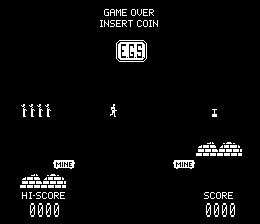
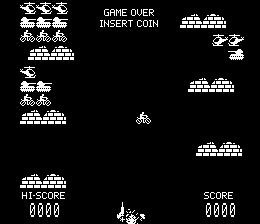
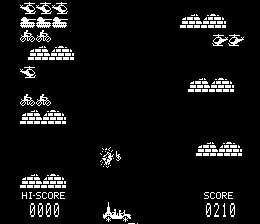
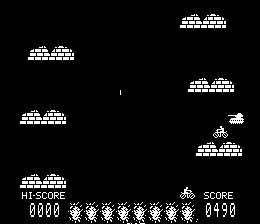
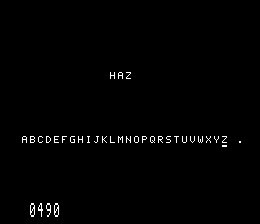
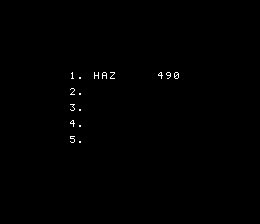
I mentioned clones, and there are lots of them, from the Spanish users of the AUMAP forums. Some are more interesting than others, but here’s a bit of a rundown of them.
Ave Fenix is of course, a Spanish release of Phoenix, and one of the most well known ones over there. It’s a full Spanish translation of the game.
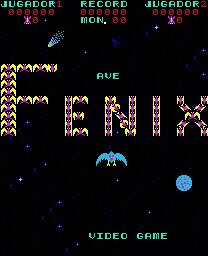
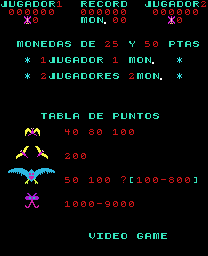
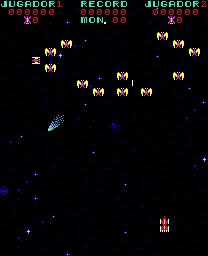
Battle Zone is a curious one. It’s another version of ‘May Day’ which in turn seems to be roughly based off some kind of Defender clone (it still has Williams copyright messages in the ROM) but is clearly a different evolution of the bootleg / hack. This one doesn’t show the ‘May Day’ text when you use the bomb, but does show a ‘Video Game’ copyright (common for Spanish bootlegs, likely the same company as Electro Game) whereas the May Day sets have no copyright displayed at all and are thought to be by Hoei. This possibly raises more questions about the origins of this game than it answers!
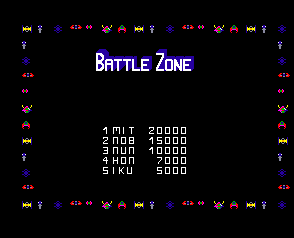
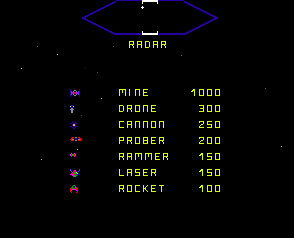
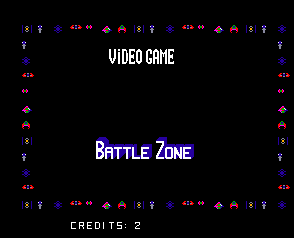
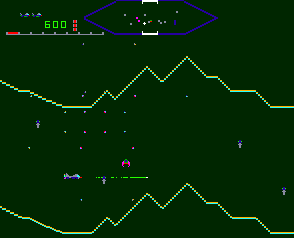
There is a bootleg of Satan of Saturn by ‘Inder’ too this one is interesting in that it has an extra ROM mapped above the ROM space of the original game containing extra code. I’m not sure if it’s just based on a later bugfixed revision of the original game, or if these mods were added entirely by Inder because I can’t really see much difference in the gameplay. It’s definitely one for somebody to pull apart and investigate.
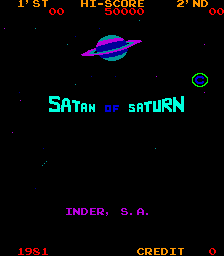
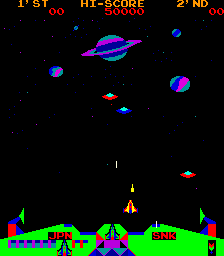
The version of Asteroids called Aerolitos is another interesting one. If you run it set to English language you’re not going to notice a real difference, but when set to Spanish it actually has a different translation of the text compared to the official sets. It seems to have been adapted to be more suited to the actual Spanish market, rather than Spanish as spoken outside of Spain. The Aeroliots version is shown on thop here
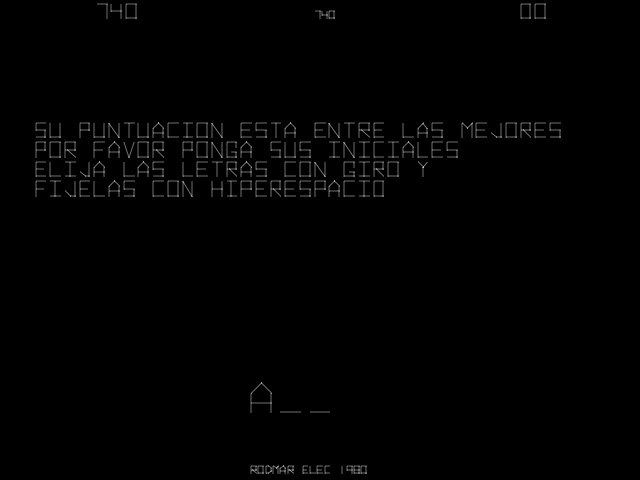
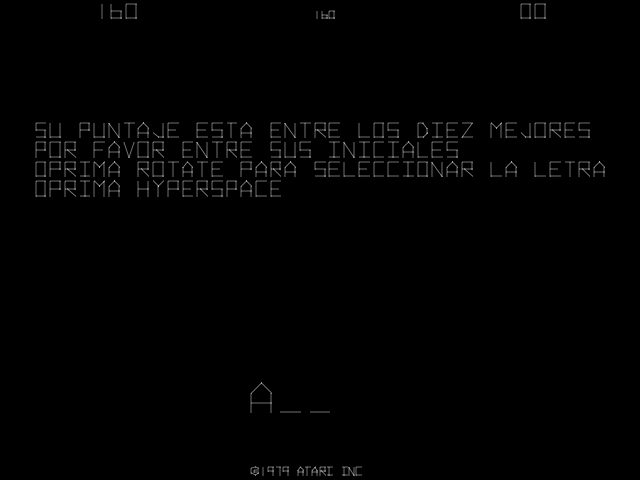
Operamatic did a version of Crazy Climber. This bootleg runs with fully decrypted code and numerous graphical replacements as well as translations of the text.
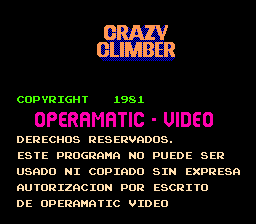
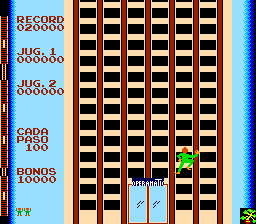
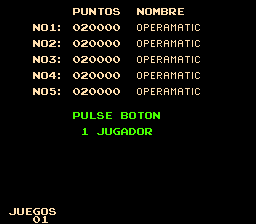
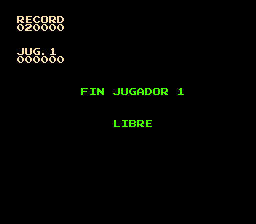
There is a Scramble bootleg on Galaxian hardware by Ruben S.A. too, interesting mostly for the different music it plays when you start a game. Maybe some Spanish readers remember hearing that tune in the arcades?
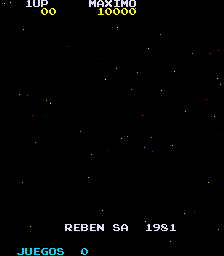
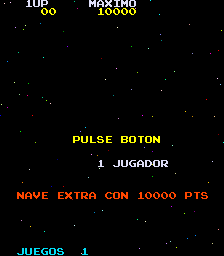
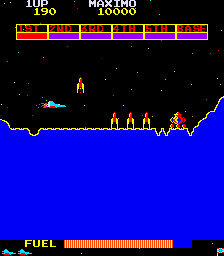
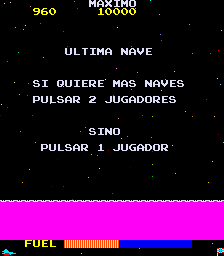
Another bootleg of Scramble called Impacto was also dumped, this one being much closer to the original hardware and the French bootlegs by Karateko etc.



One I’ve not quite finished yet (still need to fix the sprites, and see if there is a colour PROM that is more suitable because it wasn’t dumped) is an interesting bootleg of Guttang Gottong (Locomotion) on Galaxian type hardware. This is another where the sound / music has been redone (listen here) to fit the significantly inferior hardware of the bootleg. The original game actually had a dedicated audio CPU, to fit it in here they’ve actually had to hook up a bankswitch of one of the roms on the board just to have enough space to fit the new sound and sound player in! I was hoping this might spell out some more of the mystery of why the existing bootlegs of Locomotion seem to be based on such a different version of the game (with less fancy fonts etc.) but clearly this bootleg is just made from whatever the original source of those were, rather than being an earlier evolution. Fingers crossed I’ll find a moment to finish this off during this next cycle
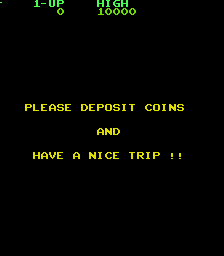
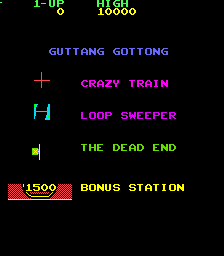
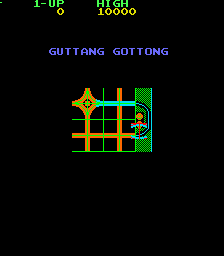
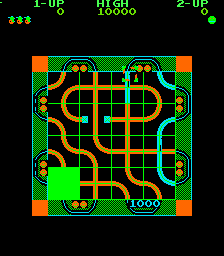
More by the numbers is a bootleg of Moon Cresta by Laguna S.A. I’m not sure if this is meant to use the original Nichibutsu graphics, but it’s a fairly standard bootleg, Spanish translation, exceptional only in that it seems to have either a bug or intentional protection check added, causing the game to reset on the 3rd enemy type if a bit read from a port (usually P2 cocktail mode fire button) is not correct. The same code that crashes the game is patched out in several other bootlegs.




There was also another UniWar S bootleg, very close to the ‘Ataque Sideral’ version called ‘Pajaro del Espacio’ a very literal name.




Beyond this the Spanish guys dumped a bootleg of Mysterious Stones on an Itisa manufactured PCB, but the only difference is 2 bytes (no visible change) and a (not Spanish) Borderline clone on a Tranquilizer Gun PCB, unfortunately with a dead ROM. A Spanish Mikie board was also dumped, but turned out to have identical ROM content to the regular versions.
Information from the Spanish guys was not limited to providing dumps of new clones, other Spanish games got some attention too. The game ‘Speed Ball’ is a Spanish developed Video Pinball. Thanks to being shown some flyers for the game it became apparent that it was distributed in several cabinet types, including one known as the ‘Super Pinball’ cabinet, made by Rumatic. The Super Pinball cabinet had several 7-seg displays for the score, bonus and balls, just like a real Pinball. Speed Ball has been emulated for a long time, but the 7-segs hadn’t been, so with the newfound information hap managed to get them working in MAME
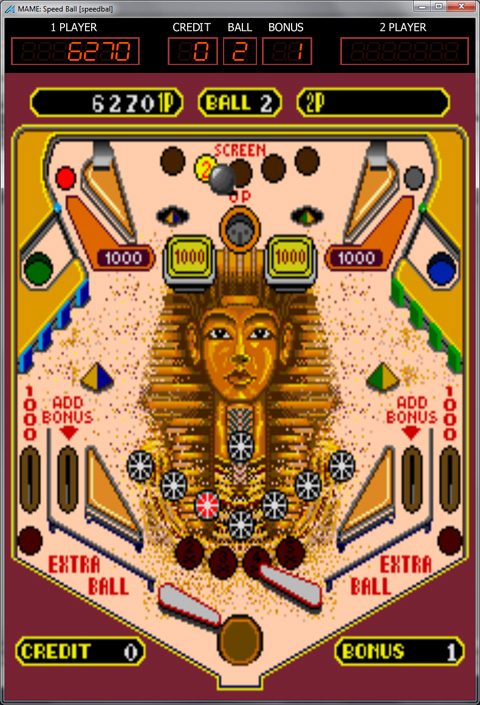
Speed Ball actually came into focus for another reason however. There is another game, previously undumped, running on the same hardware. The other game is known as Music Ball and is basically the same game but with 3 different tables, and a new theme. It was meant to have been released at the same time, but history seems to indicate there were some problems with getting it out the door.
One of the AUMAP users owns a PCB of the game, it appears to be an ‘original’ production in that it is an original Tecfri board, complete with encrypted z80 epoxy block for security. What is strange however is that his board shows no copyrights, has a blank space where you’d expect the title to be, and the rom labels are of the type Tecfri typically used when making bootlegs, not original games. Add to this that the flyers for the game actually show Speed Ball running in the Music Ball cabinet and the picture certainly gets muddy.
I was hoping that emulation could clear a few things up, show the evolution of the code, but unfortunately the encryption provided by the security module isn’t actually terrible. A few observations can be made from the graphic roms however. The roms do contain ‘Music Ball’ tiles (but not Sprites) and logos for DESystem and Rumatic. There are no Tecfri logos present in the roms at all, and the Speed Ball sprite tiles are still fully intact. This makes me wonder if Tecfri actually made the games at all, or if they licensed them from DESystem, and there was a breakdown in that process. Either way, I can’t show you emulation shots of Music Ball just yet, although I haven’t given up!
So that’s all things Spanish covered for this update, they’ve certainly been eating into my time a bit, but I don’t mind, because I do think it’s important MAME documents history from all around the world, and it’s clear that Spanish arcades have an interesting past!
Other improvements include Stunt Air looking and sounding a bit better (recordings of the sound were provided from the PCB, although no actual measurements could be made so it’s hand-tuned by hap) It’s probably a good time to give this one a whizz if you were holding off due to the more obvious imperfections in the last u update.
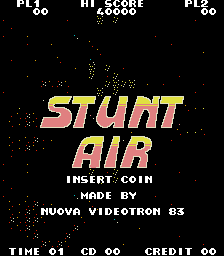
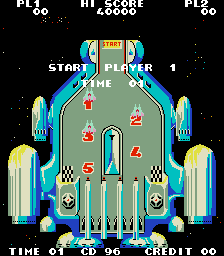
Switching focus over to the home systems there is one very significant improvement in 0.149, the .dsk file support has been restored to its former working state, and now handles the majority of ‘normal’ disk images properly (it still lacks support for the protected images, but that can come later) What this means is that a much larger amount of the Amstrad CPC disc library works again (and I’d guess Spectrum too, but there aren’t many .dsk files listed there) This should aid greatly in cleaning up that Software List as most of the software can now be launched again! I consider this progress because it’s now fully using the new floppy emulation without the issues that the transition had previously caused. If you go back far enough (over a year, maybe 2) you can find equivalent functionality, but it pains me to recommend such old versions when the projects have moved so far forward in other areas in that time.
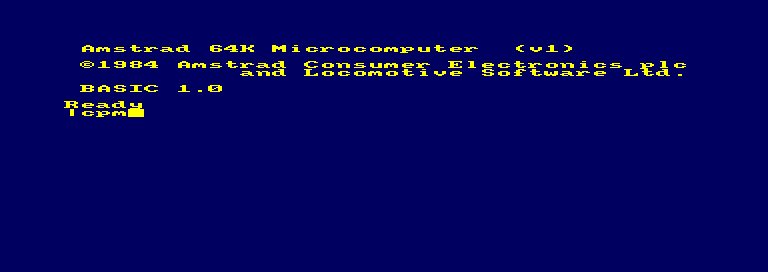
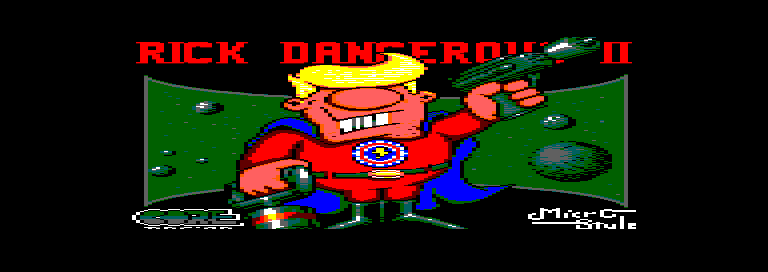
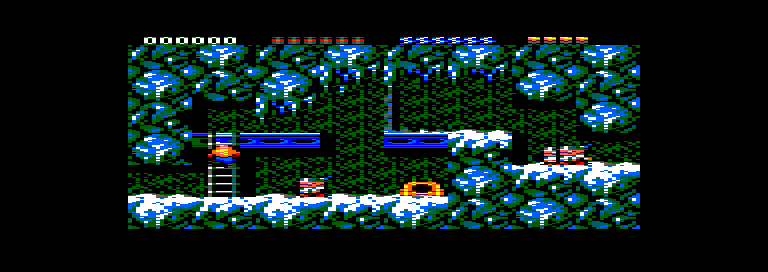
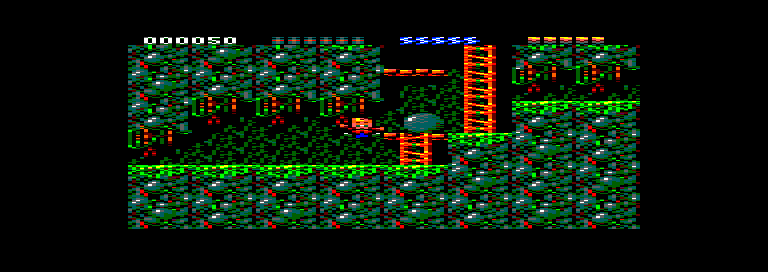
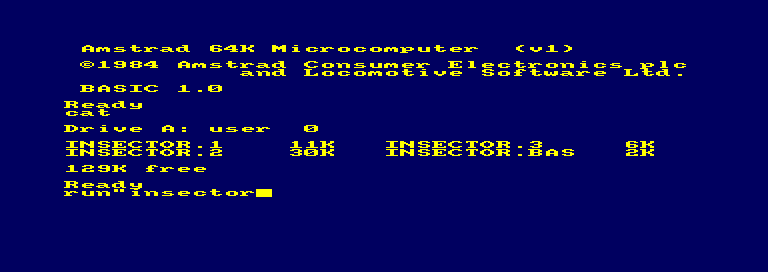
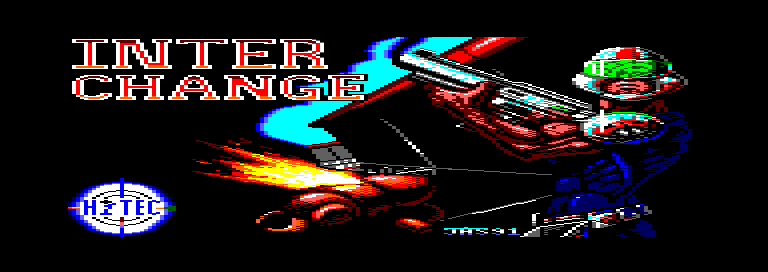
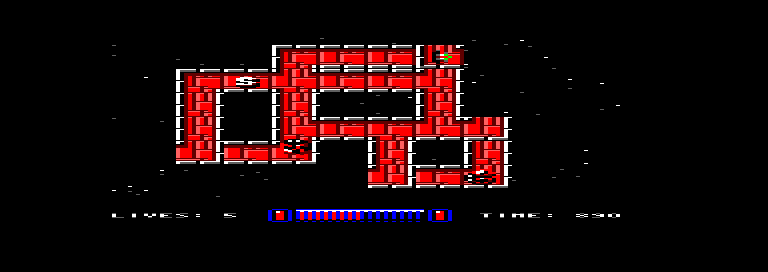
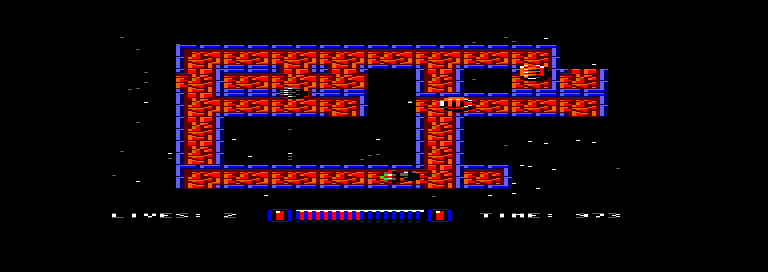
0.149 also continues down the line of providing vastly improved Save State support for many of the popular home systems (see the actual whatsnew for some details) This in turn makes MESS/UME a more attractive / usable emulator for those systems, never a bad thing!
Back to the arcades, there was another rare DECO Cassette supported, the ’18 Challenge’ version of Pro Golf, which is a newer version of the game I believe.
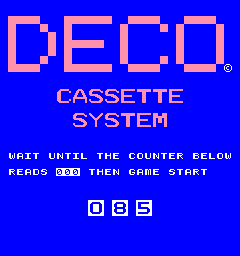
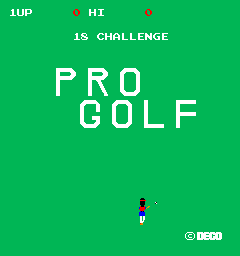
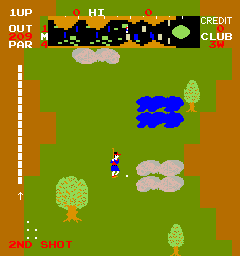
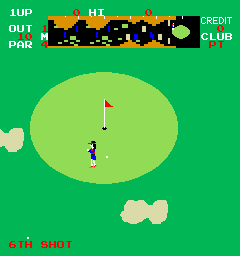
While talking about games with countdown screens I should also mention the work done to the Seibu SPI driver. Previously the driver used a hack to bypass the region protection. We believe the protection to be handled with the Flash ROMs on the motherboard, with the first byte of the Flash ROM being factory programmed to the board region. In order for a game to be flashed onto the board the region stored in the cart Program ROM must match the byte stored in the motherboard Flash ROM, or it will refuse to accept it. With the hack before this didn’t matter, but MAME will now load / require a ‘blank’ Flash ROM for each game, programmed only with the correct region, just like the Motherboard is believed to have. What this does mean however is that if you quit or reset MAME *during* the flashing process you will render the set unusable unless you clear out the files from your nvram folder. (that has scary implications for the real hardware mind you!) Just a warning that you should be careful anyway because without the hack it’s a lot more fragile ;-)
HLSL has seen improvements over the course of the cycle too, and despite a bit of a tantrum from the developer it remains present in the 0.149 release. It’s sometimes easy to forget that there were vector games outside of the arcades, but fans of home systems like the Vectrex will be glad to know that because MESS is really just a part of MAME / UME the improvements apply every bit as much there as they do to any arcade games in the baseline MAME builds. It would be all too easy to overlook the changes here, so I’m putting some nice big screenshots up, complete with the overlays.
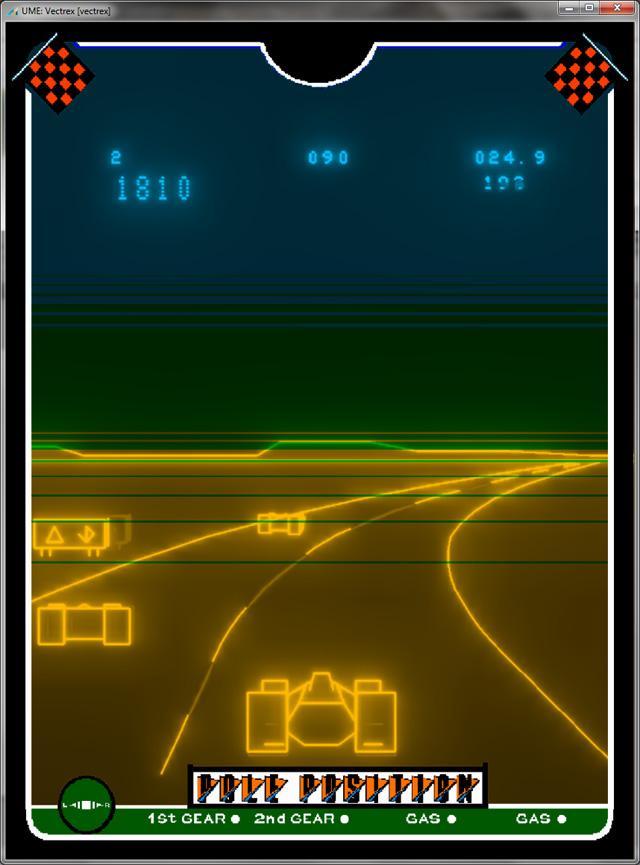
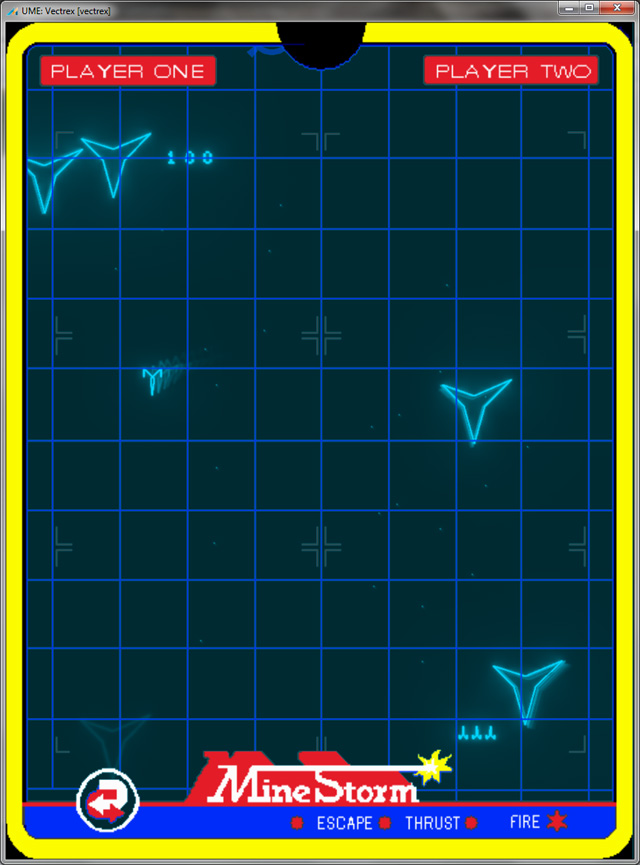
I’ve mentioned in previous updates that it’s sometimes easy to overlook simple softlist additions because they don’t really connect directly to the improvement of individual system emulations in the changelogs, but once again I’m going to highlight one that caught my eye.
Last year a company called ‘1985Alternativo’ put out (in physical form) a remake of the classic 8-bit game ‘Oh Mummy’ on the Genesis. This was a decent looking remake of the game, including both a ‘new’ mode and a ‘classic’ mode which attempted to look and play exactly like the Amstrad CPC original. This year, after selling out of the physical copies the company behind the game decided to make their creation free to download for all emulation fans etc. To me that’s a fantastic way of doing business, make your money selling the physical versions to people who want them and want to use them on original systems or collect them as a rare item etc. but then allow everybody else to enjoy your creation too.
Needless to say, this also means that the game is also now referenced in the MESS Softlists, and appears to run just fine.
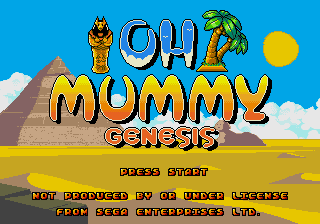
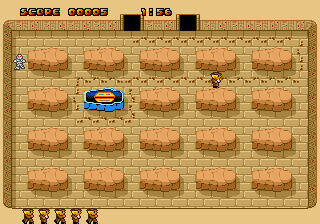
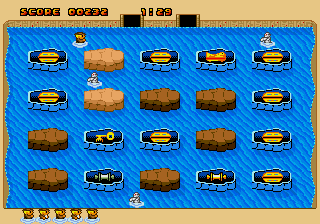
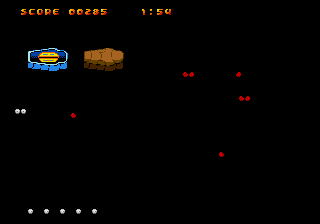
The ‘Classic’ mode in the Genesis release is shown below
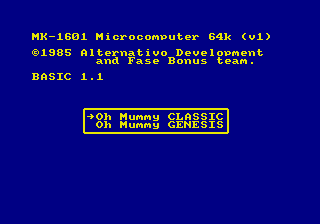
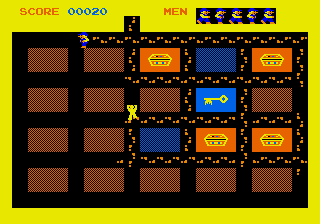
Of course the great thing about UME is that you can effortlessly run the CPC original in the same emulator for comparison, how exceptionally cool is that!
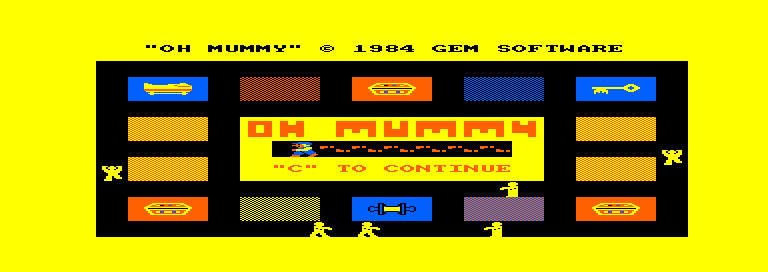
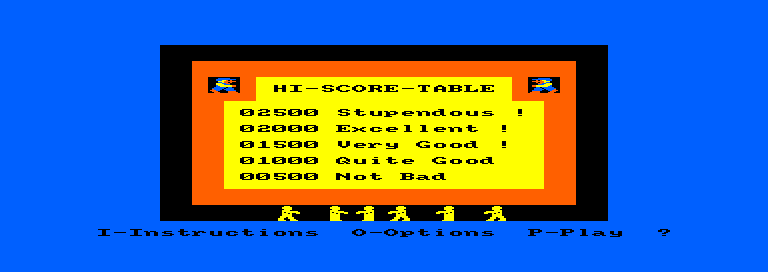
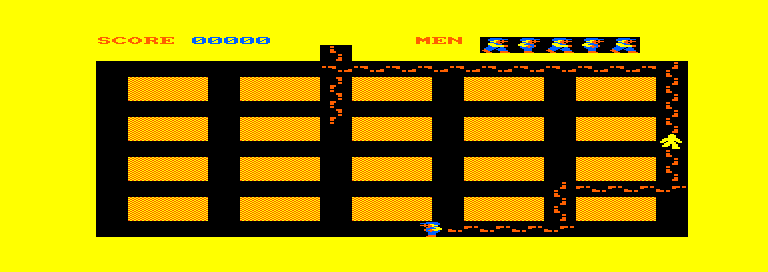
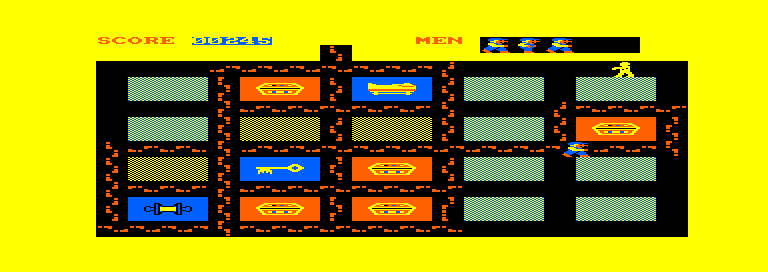
The ZX Spectrum version can also be used in UME (although isn’t in the Softlists yet) although I couldn’t get the MSX disk version to run (also not in the Softlists yet)